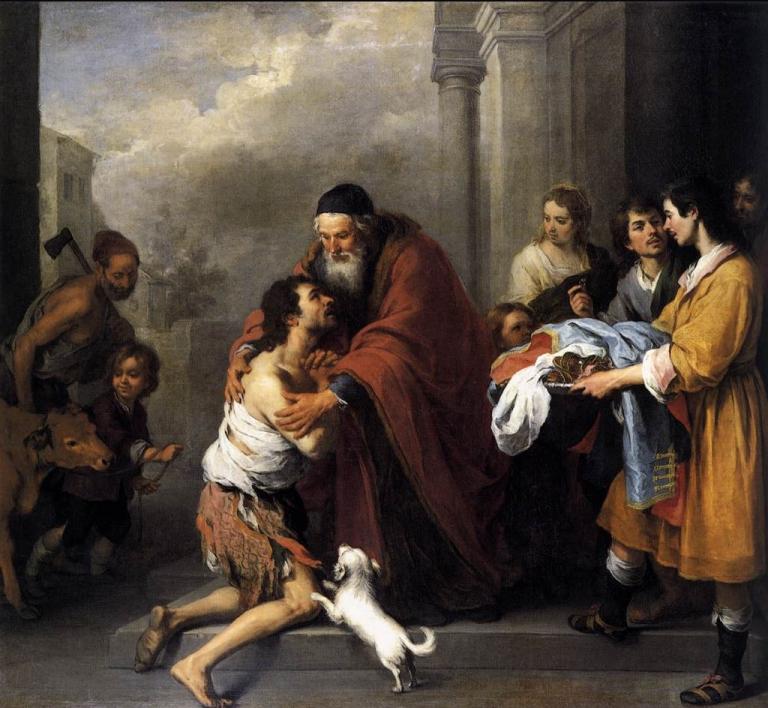Sometimes your mom just straight-up told you to do something. She played the Mom Card, pulled rank and gave you direct orders.
That was your mom’s prerogative. She had that authority. She was the mom and you were the kid, so she was in charge.

But if your mom was anything like mine — which is to say, if you were lucky enough to have a good mom, and I hope you were — then most of the time she didn’t resort to such direct commands.
A mom’s job, after all, is to raise kids who become good people and not merely obedient drones. A good mom doesn’t just want her children to comply with direct orders, she wants them to have good character — to make decisions and to take initiative, thinking and acting for themselves without always needing to be told what to do.
So sometimes your mom might say something like “Clean your room!” But other times she would simply suggest that a clean room was better than a messy one. It’s so much nicer, isn’t it, when your room is clean? She would remind you that it makes her happy when your room is clean, and that seeing your room clean made her proud.
Most of us, being kids when we were kids, were sometimes a little slow on the uptake. Direct orders were easy to understand, but these indirect appeals to become the kind of people who don’t require a steady stream of commands and rules and orders could be a bit more confusing.
So at some point most of us had some version of this conversation with our moms:
KID: So you’re telling me I have to clean my room?
MOM: I think we’d both be happier if your room was clean.
KID: So you want me to clean my room?
MOM: I want you to want to clean your room.
That’s the key. It wasn’t about giving you rules or orders that she wanted you to obey. It was about her wanting you to want to be good. She wanted you not just to obey but to understand what the right thing was and to choose to do it on your own.
And that, in a nutshell, is the New Testament book of Philemon.
We call it a book, but it’s really only a single chapter. It’s just 25 verses long, less than 500 words in all. It’s barely even an “epistle,” more like a post card.
This pithy epistle isn’t addressed to a local church or community like Paul’s longer letters sent to those gathered in Rome or in Corinth or Galatia. It’s a very personal note addressed to a single, individual person: Philemon. And it addresses a single thing: Philemon’s relationship to another individual, single person — a man named Onesimus.
Onesimus had been a slave. He had been Philemon’s slave. But he escaped. He got away. That was illegal, of course, since Roman law was written by slave-owners and not by slaves. So Onesimus was out of the frying pan and into the fire. He had become an undocumented fugitive who faced severe punishment if the Roman law caught up with him.
As a fugitive, Onesimus was no longer attached to any household, and that meant he was no longer able to participate in the Roman economy. So he was in a dangerous, untenable fix until he found refuge with the itinerant apostle Paul and his crew. Paul welcomed him, not as a slave, but as another member of his little team.
Paul clearly understood Onesimus’ predicament. He knew what the law said about runaway slaves and what it said about those who harbor them. But despite all that business in Romans 13 about the authority of government, Paul never seems to have given any thought to obeying his legal obligations for dealing with this fugitive. And he never seemed particularly worried that they might get caught.
What did worry Paul, a great deal, was that both Onesimus and Philemon were Christians. Two members of Paul’s Christian community were estranged, and that was not how things ought to be. Worse than that, before Onesimus escaped, one Christian had owned another Christian, regarding him as property, and that was also not how things ought to be either.
So Paul did something strange. He sent Onesimus home, carrying this letter.
Onesimus’ arrival there would present Philemon with a choice. Philemon had legal rights — property rights over Onesimus — and under Roman law he was free to act on those rights, meaning punishment and re-enslavement for Onesimus.
And Paul never tells Philemon not to do that. Paul does not tell Philemon what to do at all. He scrupulously, elaborately refuses to do so. Paul’s letter, in fact, is an extravagant exercise in not telling Philemon what to do.
And yet, receiving this letter from the pen of Paul and the hand of Onesimus, Philemon would have to have been an idiot not to have understood exactly what it was that Paul wanted and expected him to do.
And to anyone reading this letter today — even 2,000 years later, after it has been canonized and translated — that message is just as obvious.
Paul has set the stage for a re-enactment of Jesus’ parable of the Prodigal Son. He has cast Onesimus in the role of the son, sending him home to ask to be permitted to return to the household as a slave.
Christian defenders of slavery and of unlimited property rights (two categories that overlap significantly) stop there. That is all they want to hear from Paul’s letter and so that is all they are willing to hear from it. They pretend that is all there is to this story — a fugitive slave returned to his master — and thus pretend that it provides everything an authoritarian, a property extremist, a slave-owner or a creditor might ever long for the Bible to say: Authority must be obeyed; rules must be followed; the powerful are rightly in charge; debts must be repaid.
But Philemon did not understand Paul’s letter to be saying that. He did not dare ignore what Paul was clearly suggesting throughout the letter. He understood — because it was impossible to read this letter without understanding — that Paul was also casting him in this re-enactment of the parable. Philemon’s role was to play the part of the Father in Jesus’ story. He was not being asked to forgive Onesimus, or to take him back as a slave. He was being invited to embrace Onesimus and to celebrate his return “no longer as a slave” but as family.
And Paul goes beyond the parable’s hierarchy of father and son, urging Philemon to embrace Onesimus as his equal — “a beloved brother.”
“Though I am bold enough in Christ to command you to do your duty,” Paul writes, “yet I would rather appeal to you on the basis of love.”
Paul repeatedly stresses that, as an apostle, he could pull rank. But instead he makes a big show of not doing that, “in order that your good deed might be voluntary and not something forced.”
Paul says it would “refresh my heart” to hear that Onesimus is “no longer a slave” in Philemon’s household. He writes that he is “confident” that Philemon will do the right thing, and that he knows Philemon “will do even more than I say.”
For all this talk of “voluntary” and unforced action “on the basis of love,” it’s also evident that Paul is not suggesting that Philemon has more than a single valid option. He can freely choose to do what is acceptable, or he can do what is utterly unacceptable.
This closely parallels the “voluntary” aspect of the radical economic sharing Paul urges the Corinthian Christians to adopt in 2 Corinthians 8. Paul wanted to persuade them to be like the Christians in Jerusalem, where, the book of Acts says:
The whole group of those who believed were of one heart and soul, and no one claimed private ownership of any possessions, but everything they owned was held in common. With great power the apostles gave their testimony to the resurrection of the Lord Jesus, and great grace was upon them all. There was not a needy person among them, for as many as owned lands or houses sold them and brought the proceeds of what was sold. They laid it at the apostles’ feet, and it was distributed to each as any had need.
This communal sharing was not commanded. It was always “voluntary and not something forced.” But while it was not explicitly required, it was still regarded as a “duty” — an unavoidable obligation “on the basis of love.”
That is the basis for Paul’s appeal to Philemon — a duty on the basis of love.
Paul finishes his letter to Philemon with this delicious kicker:
One more thing — prepare a guest room for me.
Yeah, Paul is confident Philemon will do the right thing, and that he “will do even more than I say.” Paul refused to give Philemon a direct order, but he’ll be dropping by — soon — to make sure that his non-order has been carried out as it must be.












